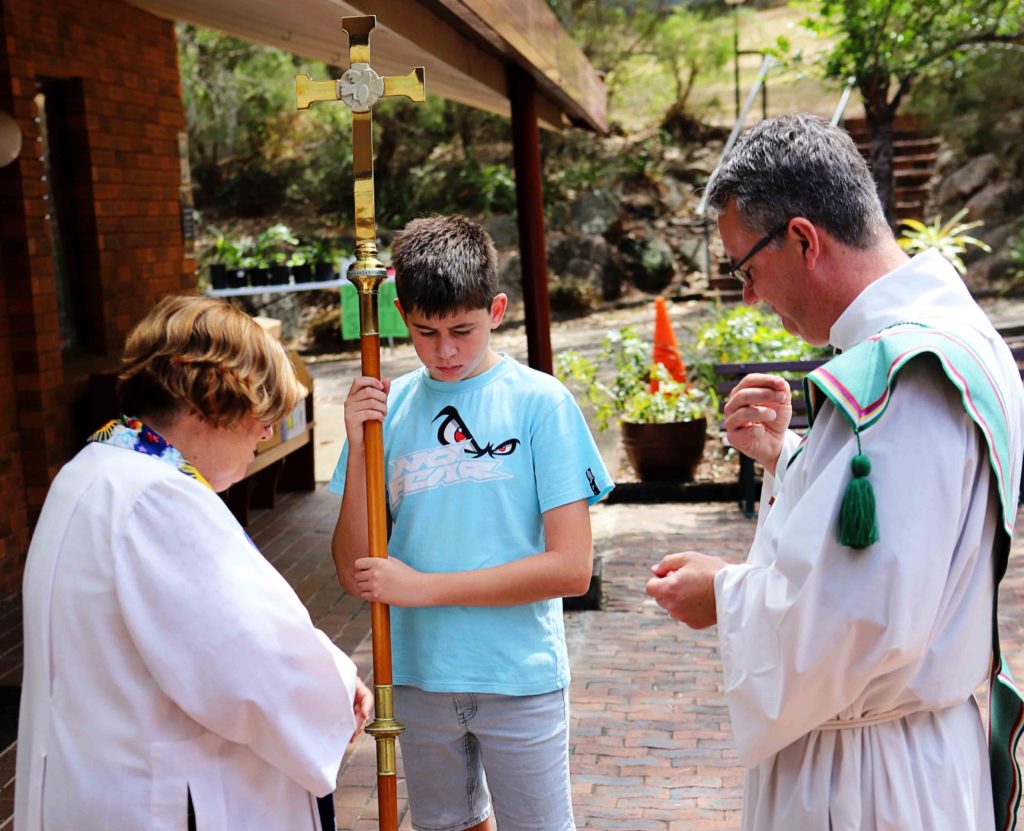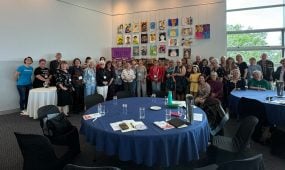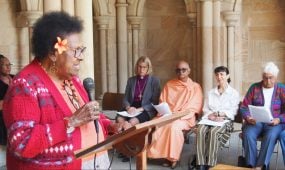Raising up the leaders of today and tomorrow
Reflections
“Giving young people practical experience in leading a range of ministries on Sundays and during the week has repeatedly been shown to encourage vocational identity, as ministry gifts are discovered and refined,” says AYCF’s and The Parish of Kenmore-Brookfield’s The Rev’d Jonathan Kemp

Story Timeline
Creating communities of care
- Hero priests or communities of care?
- ‘Bums off seats’: creating a community of care
- The mission of the Church and communities of care
- Building networks of parishioners
- Our op shop: another door to our church
- Blessing and building the North Lakes community
- Making and maturing disciples of Jesus
- From living on Christchurch’s streets to helping those living on Toowoomba’s
Approaching the conclusion of my time in Youth, Children and Families (YCF) ministry, my feelings are mixed. What might be termed the ‘traditional’ model of YCF ministry is still prevalent in many places – young people move from Sunday School to youth groups and Ichthus camps (and beyond if we are lucky), but a distinctive feature of this model is the siloing of young people into age-specific groups. This is useful in some respects, but not a strong long-term strategy as the disappointing overall number of youth in our churches demonstrates.
Instead, we should consider implementing a scriptural and sustainable model based on intergenerational principles. There is no problem with age-specific groups (of any age) leaving the gathered church during worship, as long as they reconnect promptly and share what they have learnt. By intentionally structuring the church’s patterns of activity to include interaction between multiple generations, young people are encouraged to feel included as ‘normal’, active and valued members of the faith community.

“By intentionally structuring the church’s patterns of activity to include interaction between multiple generations, young people are encouraged to feel included as ‘normal’, active and valued members of the faith community” (The Rev’d Jan Crombie, crucifer Alexander Bruton and The Rev’d Jonathan Kemp at a Parish of Kenmore-Brookfield service on Sunday 11 October 2020)
As well as the weekly intergenerational Sunday 9.30 am service at the Parish of Kenmore-Brookfield, where I will soon serve as Assistant Priest, we encourage youth to lead the fourth and fifth Sunday services by filling as many roles as possible, including reading, intercessions, technology, drama, and so on. Giving young people practical experience in leading a range of ministries on Sundays and during the week has repeatedly been shown to encourage vocational identity, as ministry gifts are discovered and refined.
Advertisement
Every young person should be given the opportunity to lead at some level within their faith community. Virtually every lay or ordained church leader today can tell stories of opportunities they were given when they were younger, and the confidence and skills they gained as a result. In my case, I was a rostered Reader and invited on to Parish Council as a young adult, but my friends and I also ran Youth Synods, large-scale gatherings of young Anglicans and many other camps and events. It is remarkable how many of us have moved from leading youth events into senior lay and ordained roles today.

“Every young person should be given the opportunity to lead at some level within their faith community” (The talented Eleanor and Toby Bailey singing at a Parish of Kenmore-Brookfield service on Sunday 11 October 2020)
An intergenerational model of church, moving beyond Sunday worship to encompass learning, serving, caring for each other and even having fun together, is where we need to be going. Some parishes are already exploring all-age service opportunities, such as developing community gardens, like St Thomas’ Toowong or ‘Baroona Farm’ at Milton. Many Anglican schools have links with local Anglicare agencies, so that youth are able to assist as homework tutors or help with staffing community events. Other youth at my parish have taken the lead in promoting fundraising activities, such as container exchange programs, Lids4Kids, and recycling e-waste. That such an all-age, ‘more than one day a week’ model of church is becoming increasingly popular is certainly a silver lining to the COVID-19 cloud. As the intergenerational ministry expert John Roberto puts it, “The clearest way of learning to be Christian is to participate with others in the practices of being Christian”, and this idea applies to all ages.






